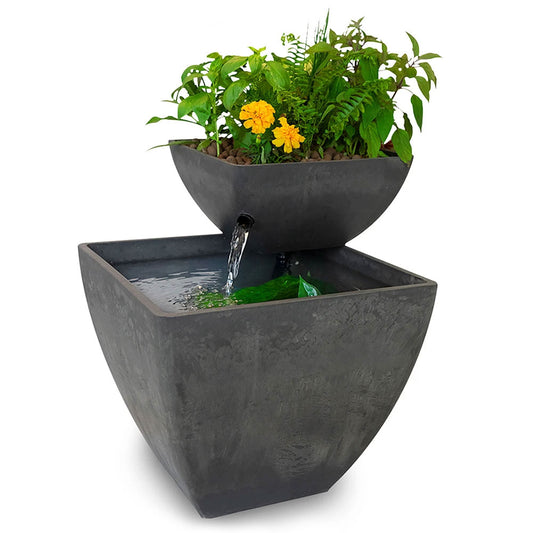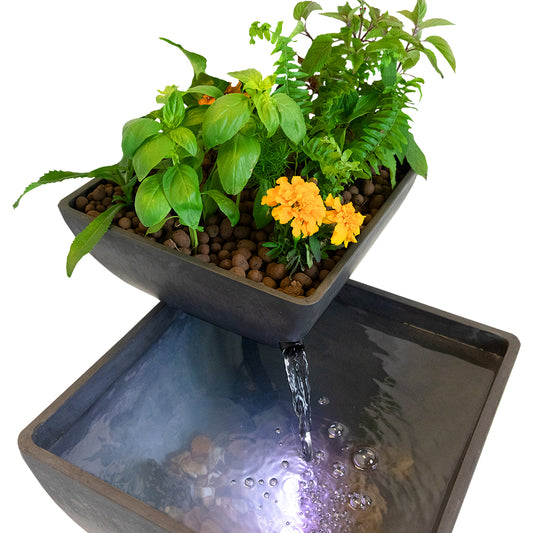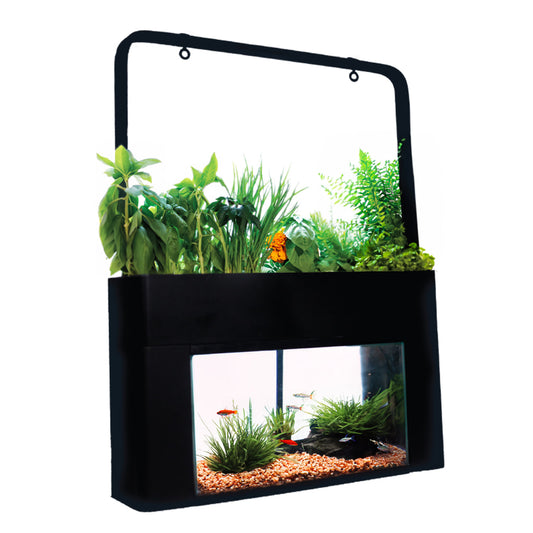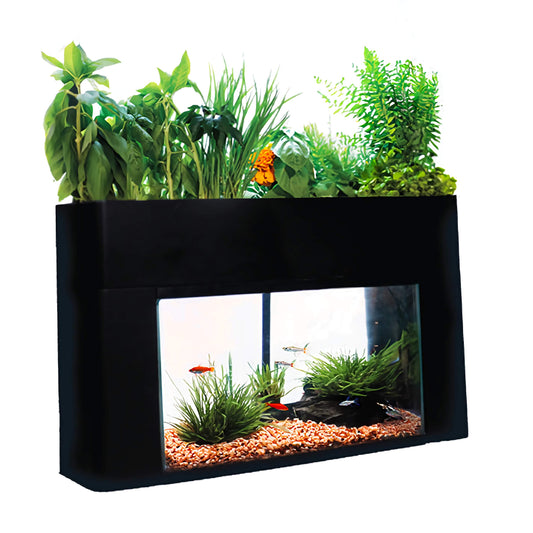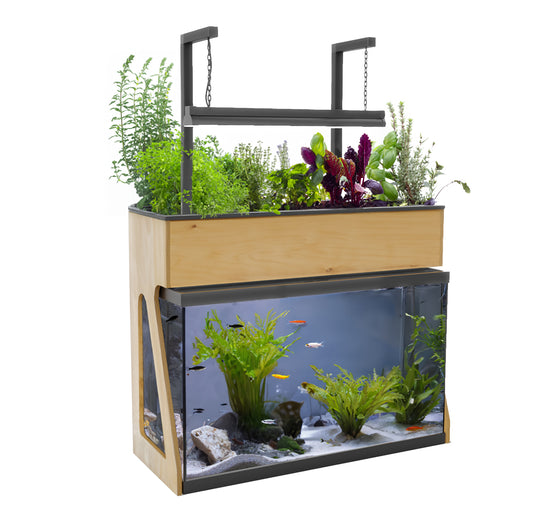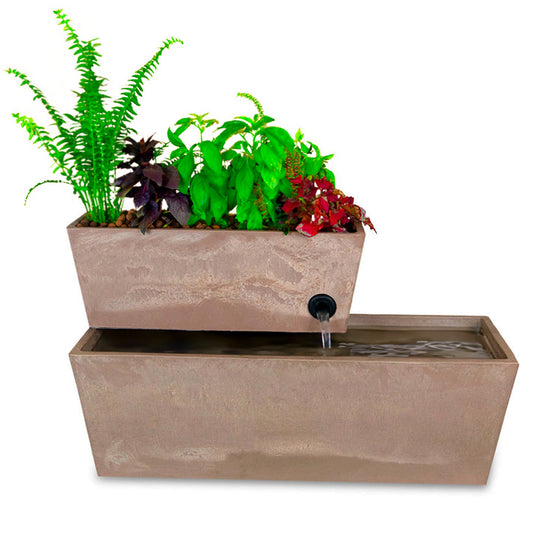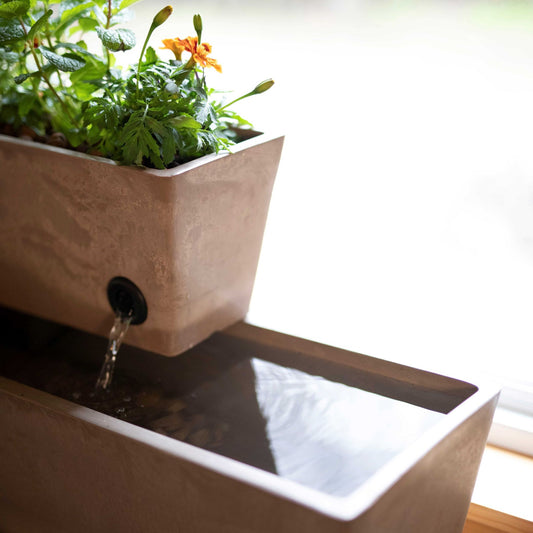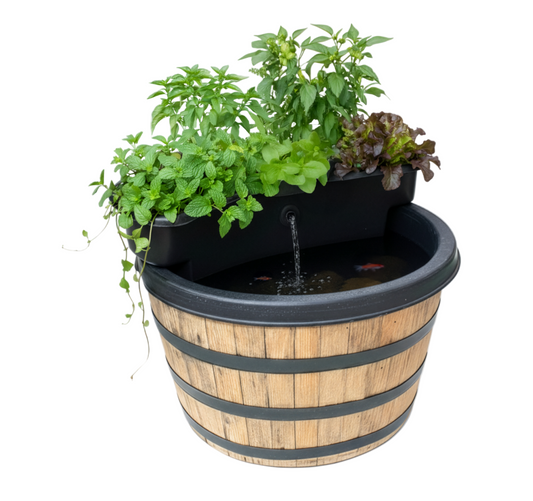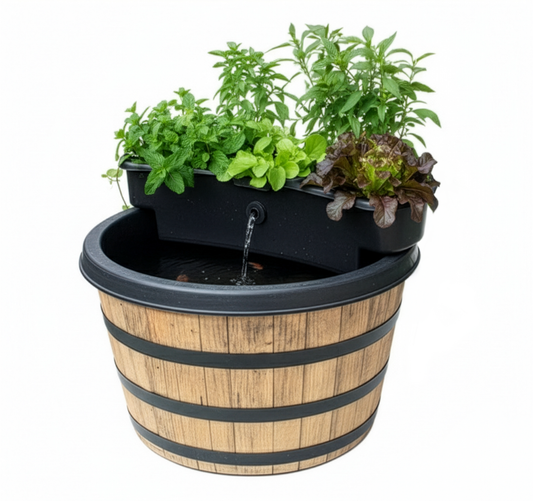Aquaponics & Schools. Why It Helps With A Hands-On Approach To Learning

There's no denying that increasing food demand due to a growing population and decreasing farmable lands and soil health depletion is becoming one of the greatest challenges facing us. Growing food without soil via hydroponics or aquaponic farming can help to solve some of our future challenges. Aquaponic projects like this help to teach students and the local community about sustainability, food miles, soil health, regenerative practices and biodiversity in order to help solve future problems. Food is imperative to our communities, our survival, and our health.
Aquaponics and Hydroponics fit directly into the STEM learning programs, and gives students the knowledge and tools to create a healthy and sustainable food production system. STEM disciplines including; Science, Technology, Engineering (electronics), Math (pH and analysis), Environmental studies, Geography, Life Sciences, Botany/plant biology, Biodiversity, Aquaculture, Agriculture and related sciences and natural resource conservation ideologies.
Not only are their educational benefits but lifestyle ones too. It helps students and the broader community to unpack and understand the importance of organic food. When a school adopts a whole-school approach to environmental studies, it delivers a clear message that sustainability is at the heart of the school culture, in the curriculum, across all operations and management of the school, and throughout connections and partnerships in the community. It makes learning fun and adaptable with new technology and emerging trends.
Benefits of Aquaponics in Schools:
- Improve the schools attitude towards sustainability and environmental issues
- Helps schools on their journey to becoming carbon neutral in the future
- Modernize the sustainability offering and curriculum based learning opportunities
- Develop responsible students who will need to care and nurture the green space through maintenance and development
- Provide additional wellness benefits for students through nature and green space initiatives
- Integrate hands-on learning into the curriculum and assist in teaching content for STEM disciplines
- STEM education creates critical thinkers, increases science literacy, and enables the next generation of innovators to help solve problems
- Because of the nature of Aquaponics, being a living ecosystem, it’s observed that nurturing a living ecosystem also simulates a therapeutic environment for students of all learning styles as well as learning differences
- Increase learning skills and peer-to-peer interaction, new learning initiatives
- Stimulate healthy food production at the school and encourage a more healthy lifestyle for students
- Generate discussion around natural resources, waste, and real world impacts
- Raise awareness within the school, students, families and the broader school community through a garden which is visible to all staff and students
- Keep students continuously engaged with an alternative learning opportunity and change behaviors towards learning
- Generate classroom discussion and positive student interaction through group projects
- Students can monitor, analyze and present back leanings to the classroom, create useful insights and results and discuss key learnings
- Students can analyze trends, identify relationships through ecosystems and biodiversity
- Student resources for course guides, reports, work sheets, presentations and research for added curriculum benefits

